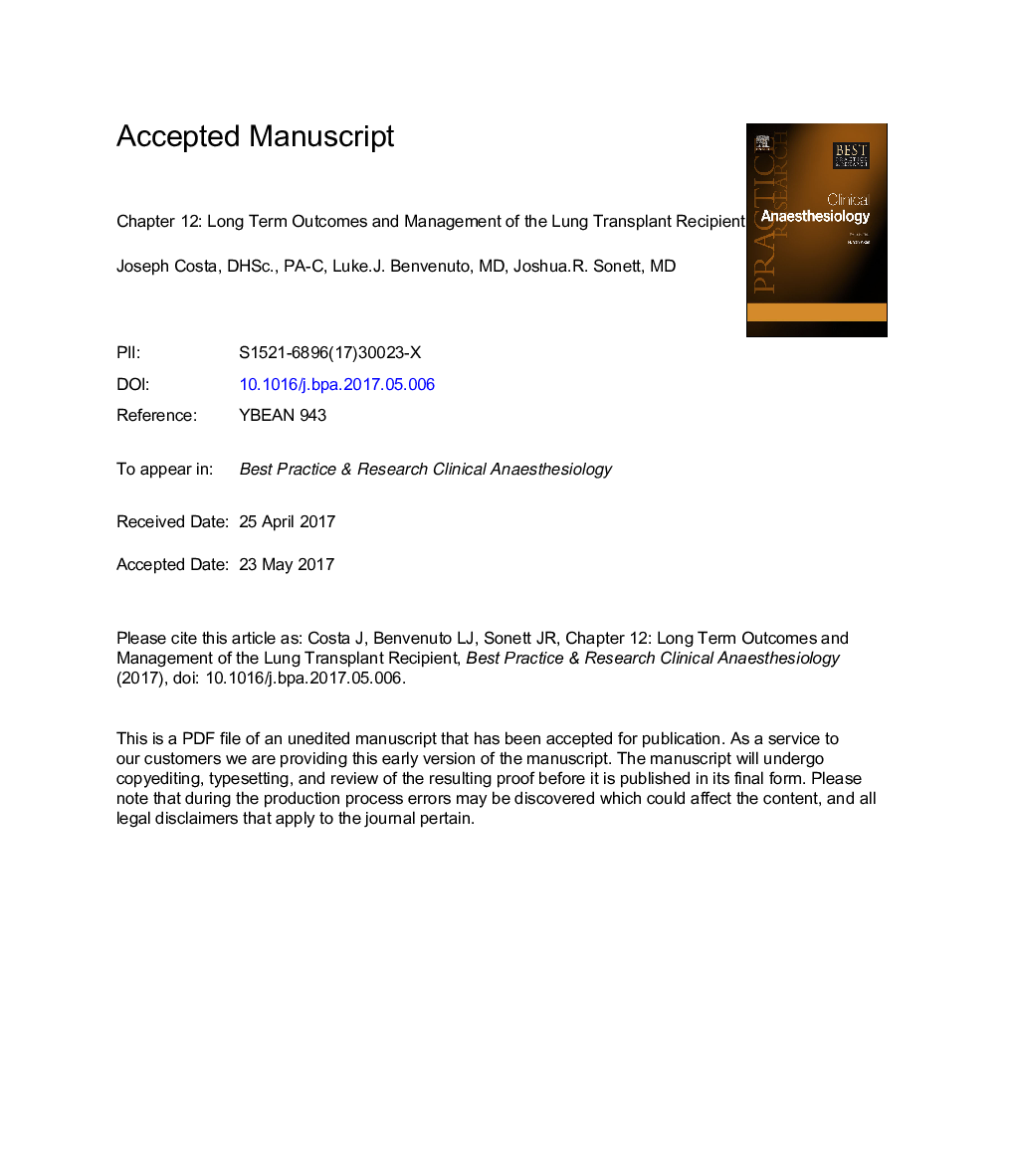| Article ID | Journal | Published Year | Pages | File Type |
|---|---|---|---|---|
| 8610935 | Best Practice & Research Clinical Anaesthesiology | 2017 | 36 Pages |
Abstract
Lung transplantation is an established treatment for patients with end-stage lung disease. Improvements in immunosuppression and therapeutic management of infections have resulted in improved long-term survival and a decline in allograft rejection. Allograft rejection continues to be a serious complication following lung transplantation, thereby leading to acute graft failure and, subsequently, chronic lung allograft dysfunction (CLAD). Bronchiolitis obliterans syndrome (BOS), the most common phenotype of CLAD, is the leading cause of late mortality and morbidity in lung recipients, with 50% having developed BOS within 5 years of lung transplantation. Infections in lung transplant recipients are also a significant complication and represent the most common cause of death within the first year. The success of lung transplantation depends on careful management of immunosuppressive regimens to reduce the rate of rejection, while monitoring recipients for infections and complications to help identify problems early. The long-term outcomes and management of lung transplant recipients are critically based on modulating natural immune response of the recipient to prevent acute and chronic rejection. Understanding the immune mechanisms and temporal correlation of acute and chronic rejection is thus critical in the long-term management of lung recipients.
Keywords
Related Topics
Health Sciences
Medicine and Dentistry
Anesthesiology and Pain Medicine
Authors
Joseph (Instructor of Clinical Surgical Sciences in Surgery), Luke J. (Assistant Professor of Medicine), Joshua R. (Chief, General Thoracic Surgery, Edwin C and Anne K. Weiskopf Professor of Surgical Oncology, Director),
